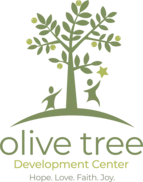Specialised Programmes
Overview
The Social Skills Programme is a group-based intervention developed to help children ages 4 to 12 years learn and improve on their social skills through play and shared experiences. This programme helps your child engage, self-regulate and communicate within a social setting, encouraging positive behaviours and reducing inappropriate ones.
Children who benefit from the Social Skills Programme may have:
- Difficulty playing and communicating efficiently with peers
- Difficulty staying focused during group activities
- Difficulty in self-management or responsible decision-making
- Delays in language
- Limited success in current playgroup or preschool settings

Intervention
Core social skills are taught within a safe and encouraging environment through engaging environments that incorporate multisensory play, creative projects and social activities. Through these planned opportunities, children develop crucial relational skills such as recognizing emotions, risk assessment, giving and following instructions, empathy and self-leadership. Therapists adopt a combination of instructional materials from the Social Thinking®, Pearson’s Social Skills Improvement System - Social Emotional Learning (SSIS - SEL) Edition, and the Classwide Intervention Programme (CIP).
Overview
Social Thinking® is an evidence-based protocol that uses cognitive strategies to help individuals improve their social competencies, such as:
- Self-awareness
- Self-regulation
- Social-emotional learning
- Perspective-taking
- Social problem-solving skills

This programme teaches children to actively process real-time social encounters, identify what is expected in each context, and actively find solutions to any challenges.
Intervention
The therapist presents each social skill or theme to the group in modules. Through a variety of activities, your child will:
- Learn to describe expected and unexpected behaviors
- Participate in role-playing scenarios
- Discuss social strategies with peers
- Relate topics to own experiences
- Complete weekly tasks
Overview
The executive functions are a set of skills that underlie the capacity for adaptive and appropriate behaviours in a person’s academic, physical and social environment. Many children lack these critical skills for:
- Planning / prioritization
- Time management
- Organization
- Task initiation
- Working memory
- Attention
- Metacognition
- Emotional control
- Flexibility
- Goal-directed persistence

Intervention
The occupational therapists and educational therapists facilitate several activities that build on these executive function skills. These include:
- Complex obstacle courses for decision making, body awareness, planning and sequencing
- Tabletop / academic activities for critical thinking and problem solving
- Hands-on activities such as strategies games and model-making
- Educational learning strategies
Overview
The Narrative Development Programme is a two-tier curriculum enriching a child’s ability to generate, retell and recall stories and experiences. Such skills include:
- Complex sentence construction
- Following rules of storytelling
- Building grade-level vocabulary
- Written composition skills

Intervention
The therapist uses a variety of skill-based activities and simulations to elicit discourse. These include:
- Role-playing
- Practical activities
- Storytelling and sharing
- Story generation
Overview
Olive Tree’s Paediatric Intervention programme is a guided therapeutic intervention for typically developing children and children with special needs. This therapeutic intervention encourages and stimulates your child’s emerging development. The environment and intervention framework are guided by professional judgment and based on your child’s developmental milestones. This program is suitable for infants and toddlers, with chronological ages from 12 months up to 30 months, by providing them with sensory-rich experiences and abundant language stimulation that builds a strong foundation for your child’s development journey.
This programme aims to develop the following skills:
- Verbal and non-verbal communication
- Social interaction
- Play exploration
- Sensory processing
- Cognition
- Improve arousal levels
- Gross Motor Skills (coordination, tone, developmental milestones)
- Fine motor skills (grasp, pre-writing skills)
- Facilitate independence in Activities of daily living

Intervention
The programme takes an individualised and multidisciplinary approach. Our team of speech and occupational therapists will work together to develop an individualized intervention plan for your child to ensure their unique strengths and challenges are utilised and addressed to help them reach their maximum potential. Parents will be educated along the way to provide support and guidance for families.
We incorporate a number of well-regarded interventions such as baby exercises that promote motor skills to support your child’s discovery and exploration. We also use different Language Stimulation Techniques to develop and improve your child’s precursory skills for language such as joint attention, object permanence, imitation, and requesting, among others.
This programme also aims to improve the child’s overall development through play. Play elicits more than enjoyment; it is also a catalyst to the development of cognitive, social, motor and sensory processing skills.
- Sensory motor activities
- Obstacle course and relay games
- Collaborative projects (e.g. building a tower together)
- Speaking and listening given varying degrees of background distractions
- Board and party games that involve both verbal and non-verbal communication

